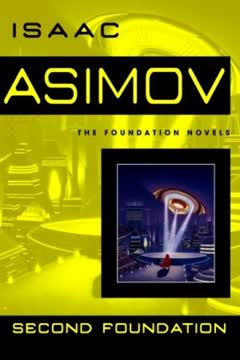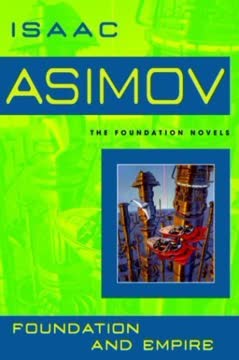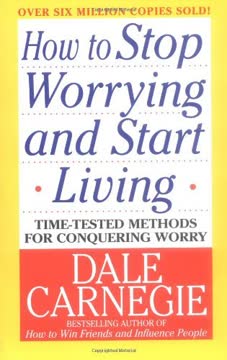Key Takeaways
1. Your Body is a Super-Advanced Vehicle.
The odds of you being you are so remote that it’s an absolute miracle that you are indeed you.
Miracle of existence. Your body is an incredibly complex and rare piece of technology, a champion from the very beginning, winning the most important race of all – the race to life. It's made of billions of atoms, has vast networks of vessels, and capabilities like remembering 50,000 scents or distinguishing ten million colors. This amazing vehicle is what carries you through life and learning.
Care for your vehicle. Just like any advanced technology, your body needs proper maintenance to function optimally, especially for studying. Neglecting your physical health can severely hamper your ability to focus and perform. Key maintenance includes:
- Drinking enough water (brain is 80% water)
- Eating healthy, fresh, preferably vegetarian food
- Getting sufficient sleep (6-8 hours, especially 11 pm-3 am)
- Exercising regularly (walking, cycling, yoga, gym)
- Maintaining personal hygiene
Stress management is vital. Stress negatively impacts both body and mind. Learning techniques to bust stress, such as meditation or breathing exercises, increases your capacity and energy levels, making you more resilient and effective in your studies and life. A healthy body makes handling life's challenges, including tough subjects, much easier.
2. Shift Your Attitude: Study for Knowledge.
If your study of a subject doesn’t fill you with wonder, or at least with interest, then you are doing something wrong.
Beyond marks and degrees. The traditional focus on getting good grades or a degree often misses the true point of education: acquiring knowledge and understanding. Studying solely for external validation turns learning into a boring drudgery, leading to "educated unemployables" who lack real understanding of their subjects.
Cultivate wonder and interest. Approach your studies with curiosity and a genuine desire to understand the material. Textbooks are distilled versions of centuries of genius; opening one should feel like entering a great cathedral, not facing a chore. Even with poor teachers or textbooks, a true student finds a way to love and celebrate the knowledge.
Real education empowers. When you truly understand your subject, good grades become a natural byproduct, not the primary goal. This deep knowledge is what society relies on and what will allow you to excel beyond those who merely memorized facts. Parents, ask "What did you learn today?" instead of "How many marks did you get?" to foster this crucial attitude shift in children.
3. Decide to Like Your Subjects.
What you like and not like is your decision.
Hatred is a choice. You weren't born hating math or any other subject. This aversion often develops due to negative experiences, like a terrorizing teacher. Instead of hating the subject, recognize that it was the teacher who was the problem. Give the subject a second chance.
Flip the switch in your mind. You have the power to decide to like something, even if it seems boring or difficult initially. This personal decision is the second rule for effective studying. The authors share a personal story of deciding to love statistics, which transformed their experience and led to mastery.
Focus follows enjoyment. You know how to focus intensely when you're enjoying something, like watching a movie or playing a game. When studying feels like a chore, focus vanishes. By deciding to enjoy your studies, you make focus automatic. Start with short, focused periods (20-30 mins) on difficult subjects and gradually build up as understanding and confidence grow.
4. Understand How Your Brain Learns.
Learning is the process of making weak synapses strong.
Neurons and dendrites. Your brain is a vast network of neurons connected by dendrites and synapses. Learning happens when new dendrites grow and form connections (synapses), and these connections strengthen with practice. Weak synapses lead to forgetting; strong ones lead to retention.
Optimize brain function:
- Practice correctly: Wrong practice wires in mistakes.
- Practice recall: Actively trying to remember strengthens connections more than passive reading.
- Spaced repetition: Practicing new material over several days (with gaps) is more effective than cramming.
- Vary study environment: Makes learning location-independent.
- Engage multiple senses: We remember more of what we see, hear, experience, and teach.
- Emotions matter: Stress inhibits learning; relaxation (like from meditation) enhances it.
- Newness attracts: The brain is wired to notice and remember novel things.
Sleep is crucial for learning. During sleep, your brain clears toxins ("Brain Poo"), strengthens important memories, deletes irrelevant information, and even rehearses difficult concepts. Going into an exam sleep-deprived means a sluggish, toxin-filled brain, hindering recall. Aim for 7-9 hours of quality sleep.
5. Embrace Radial Thinking with Mind Maps.
Mind maps allow you to do this with consummate ease.
Beyond linear lists. Our brains are wired radially, like a network of neurons, not linearly like a list. Traditional note-taking and planning methods often force us into sequential thinking, which can make learning and recall difficult and boring.
Mind mapping unlocks potential. This technique, using a central idea with radiating branches and nodes, mirrors the brain's natural structure. It allows for effortless ideation, organization, and recall. Key elements include:
- Starting with a central idea (landscape paper helps).
- Drawing radiating lines for main ideas.
- Adding sub-branches for details.
- Using curves, colors, images, and keywords (Conciseness, Craziness, Curves, Colours, Cartoons).
Benefits of mind mapping: Mind maps provide a bird's-eye view while allowing you to zoom into details. They make adding new ideas easy and foster radial thinking. Consistent practice (even rough drafts) brings clarity, improves logical thinking, and can even help solve unrelated problems. While great for organizing subjective material and ideation, they are less effective for purely linear subjects like math proofs.
6. Master Teamwork and Relationships.
Learning to work in a team or lead a team, or simply knowing how to get along with various types of people are core life skills that an astonishing number of people have never bothered to develop.
Life is a team sport. Formal education often neglects teaching crucial people skills like teamwork, leadership, and navigating relationships. These are vital for success in careers and life, as almost no one works entirely alone after graduation. People lacking these skills struggle to get jobs, advance, or grow businesses.
Being a good team player:
- Communicate honestly and positively.
- Share relevant information.
- Speak your mind, but commit to the team's decision.
- Share good news widely, bad news upwards.
- Be flexible and open to change.
- Accept challenges and brainstorm solutions, don't just list reasons why it can't be done.
Effective team leadership: Leaders make or break teams. Work with your team, not under you. Build diverse teams, clarify roles and compensation, instill a sense of purpose (the "why"), provide opportunities for mastery and autonomy, and create a sense of safety by taking responsibility for failures and giving credit for success. Quick thinking and staying calm (like through meditation) are key in crises.
7. Communicate Effectively in Relationships.
Tell them what you are thinking, instead of expecting them to read your mind.
Communication is key. Many relationship issues stem from a lack of clear communication and unrealistic expectations that others should instinctively know what you're thinking or feeling. Openly expressing your thoughts and needs prevents misunderstandings.
Simple rules for communication:
- Give generously, take graciously: Don't make others feel obligated or be a parasite.
- Nastiness should wait: Postpone expressing unpleasantness; write it down but don't send immediately. This allows time for perspective.
- Niceness shouldn't wait: Express appreciation and affection immediately. Life is fragile.
- Ingenuity and humor: Sometimes, creative, lighthearted solutions can resolve seemingly big problems.
Time, space, and conflict. Spending quality time shows you care, but giving space is also essential to avoid claustrophobia. Healthy relationships involve disagreements; don't interpret arguments as a lack of love or respect. Expanding your perspective beyond just the relationship (like having bigger goals or seeing the world as family) can make small issues seem less significant.
8. Suicide is Never an Option.
Suicide is simply not an option. It is always completely out of the question.
An absolute boundary. Regardless of how bad life feels – failure, heartbreak, stress, loneliness – suicide is never a solution. It is described as a spiritual crime and the worst possible action against oneself. It doesn't end suffering; it removes the body's ability to express and process that suffering, leaving the mind in turmoil.
Pain vs. coping resources. Suicidal thoughts stem from feeling that pain exceeds available coping resources. This doesn't mean weakness or flaw, just overwhelming pain. Suicide is a misguided attempt to end mental pain by damaging the physical body, like putting a Band-Aid on a headache.
Increase resilience and resources:
- Increase ability to bear pain: Meditation and spiritual practices help build inner strength and perspective.
- Increase resource base: Engage in social service, hobbies, and activities that bring joy and connection.
- Gratitude: Focusing on what you have, no matter how small, can dispel darkness.
- Connect with others: Share your struggles; don't isolate yourself.
- Remember loved ones: Consider the devastating impact on family and friends.
Life is for living. The human capacity to love, laugh, create, overcome, and transform is immense. Pain is inevitable, but suffering is optional. Postpone negative actions; do positive things (saying "I love you," smiling, playing, meditating) immediately. Death is natural; suicide is a calamity.
9. No Job? See it as Opportunity.
Possibly the luckiest thing that can happen to you is that you don’t get a job!
Beyond the conventional path. While jobs offer security, they aren't the only path, especially in a land of opportunity like India. For those with ambition and creativity, a job can be a waste of potential, a worst-case scenario if other ventures fail.
Explore alternative paths:
- Adventure sports, tourism, farming, teaching.
- Learning new skills online (programming, design, editing).
- Starting a restaurant, a brand, a unique service.
- Pursuing passions and turning them into professions.
Entrepreneurship requires:
- Identifying your passions (things you can do daily).
- Finding a market need (what's missing or complained about).
- Belief in yourself and committed hard work.
- Resilience to failure (like the friend who failed multiple times but found success teaching others what not to do).
- Openness to unconventional ideas and continuous learning.
Wealth follows diligence and courage. The Sanskrit saying "Udyoginaam, purushasimha, upayeti Laxmi" means wealth and success come to the diligent worker with the courage of a lion. If you can't find a job, look for opportunities to create your own work, hone different skills, and step out of the conventional box.
10. The Real Secret to Manifestation.
Intention, attention on action and non-attachment to the result of the action will lead to manifestation of the original intention in its own time.
More than just visualization. The popular "Law of Attraction" (Intention, Attention, Manifestation) is incomplete. Simply visualizing what you want (like a pizza) won't make it appear. While intention is the starting point, attention must be focused on action, not just the desired outcome.
The complete formula:
- Intention: Clearly define what you want.
- Attention on Action: Work hard and take concrete steps towards your goal.
- Non-Attachment to Results: Understand you control your actions, not the outcome. Like planting a tree, you nurture it, but the number of fruits is not in your hands. Stressing about results is futile.
- Ability to Wait: Be patient; manifestation happens in its own time. Trust that what is meant for you will come.
- Strong Reason (Why): Have a powerful underlying reason for your intention. This "why" sustains enthusiasm through obstacles, unlike weak reasons (like fitting into clothes for a party).
Sustained enthusiasm. Initial excitement fades without a strong "why." A compelling reason provides the power to overcome challenges and maintain action until the intention manifests. This complete approach guarantees manifestation in almost all cases; the rare exceptions are simply bad luck.
11. Prioritize Your Inward Journey.
The journey from the head to the heart is just a few inches, but it is quite a journey!
Inner state impacts outer life. Your internal state – your peace, confidence, and energy levels – profoundly affects your ability to handle external challenges like studying or relationships. A calm mind and healthy emotions make you more productive, creative, and resilient.
Meditation is key. Learning and regularly practicing meditation is presented as a fundamental tool for this inward journey. It helps quiet the mind, reduce stress, increase focus, and connect you to a deeper sense of self. Meditation alters brain chemistry, enhancing learning and memory.
Benefits of the inward journey:
- Increased ability to handle challenges.
- Greater peace and serenity.
- Enhanced confidence and enthusiasm.
- Positive impact on physical health.
- Deeper connection with yourself and others.
- Ability to spread positivity.
Spirituality and service. Engaging in spiritual practices and social service further supports this journey. They provide perspective, reduce self-focus ("What about me?"), and connect you to something larger than yourself. This blossoming from within makes life's adventures, including learning, more glorious and effortless.
Last updated:
Review Summary
Ready, Study, Go! by Khurshed Batliwala receives mixed reviews. Some readers praise its practical study tips, holistic approach, and mind mapping techniques. They find it inspirational and useful for students. However, others criticize it for lacking originality, promoting Art of Living programs excessively, and straying from the main topic of studying. The book's content on brain mechanisms, healthy lifestyle, and personal anecdotes is appreciated by many. Overall, it's considered helpful for students but may disappoint those seeking more innovative or evidence-based approaches to learning.
Similar Books










Download PDF
Download EPUB
.epub digital book format is ideal for reading ebooks on phones, tablets, and e-readers.




